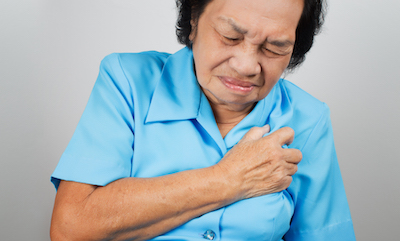For Cardiovascular Disease, It’s the 20 Percent vs the 80 Percent.

America’s wealth gap is growing, and so is its health gap. From Occupy Wall Street to the presidential bids of Senators Bernie Sanders and Elizabeth Warren, many have raised the alarm at the widening chasm between haves and have-nots, and its dire health consequences.
Now, a new School of Public Health study sheds light on two decades of increasingly unequal cardiovascular health in the US.
Published in JAMA Open Network, the study finds that most cardiovascular diseases have dramatically declined among the richest 20 percent of the US population, while for the other 80 percent these diseases have largely remained the same or increased.
“While we often talk about income gaps between the richest 1 percent and everyone else, the income gap between the richest 20 percent and remainder of the US population has been increasing over the past few decades. We wanted to see if this trend is also reflected in the disparities in health outcomes in the US population,” says study lead author Salma M. Abdalla, a research fellow in the Department of Epidemiology.
“Our results suggest that the public conversation around income inequality should move beyond a ‘top 1 percent’ narrative to one that acknowledges that the richest 20 percent of Americans are ‘pulling away’ on health from the poorest 80 percent,” she says.
“One-fifth of the US population is getting healthier despite the fact that the overall health of the US population is not.”
Abdalla and colleagues used nationally-representative data on 44,986 participants in the National Health and Nutrition Examination Survey (NHANES) between 1999 and 2016. They also used 2010 census data on cardiovascular disease prevalence by age to adjust for the wealthiest participants being slightly older on average.
The researchers found substantial and increasing disparities in the prevalence of cardiovascular disease between the richest 20 percent and remainder of the US population between 1999 and 2016. For the richest 20 percent of participants, the prevalence of angina went from 3.4 percent in 1999 to 0.3 percent in 2016, heart attack from 3.2 percent to 1.4 percent, and congestive heart failure from 1.2 percent to 0.5 percent. Only stroke remained unchanged, at 1.1 percent in 1999 and 1.0 percent in 2016.
Meanwhile, in the rest of the participants, the prevalence of angina only decreased from 3.3 percent to 2.6 percent, and heart attack barely decreased from 4.0 percent to 3.6 percent. Congestive heart failure slightly increased from 2.6 percent to 2.8 percent, and stroke from 2.9 percent to 3.2 percent.
“This paper shows that there is much more to the architecture of inequality than the public conversation around the richest one percent, pointing the way to policy solutions that might have more impact in the long term,” says Dean Sandro Galea, the study’s senior author.
Abdalla says the findings also illustrate one of the reasons that it’s so hard to dismantle the “architecture of inequality” when it comes to health and wealth.
“When one-fifth of the country is doing quite well, achieving health status comparable to other high-income countries, that one-fifth of the population responsible for the majority of the decisions that shape the health of Americans has relatively little to gain by challenging the system that sustains these advantages,” she says.
The study was co-authored by Shui Yu, who was a statistical analyst in the Department of Epidemiology while working on this study.